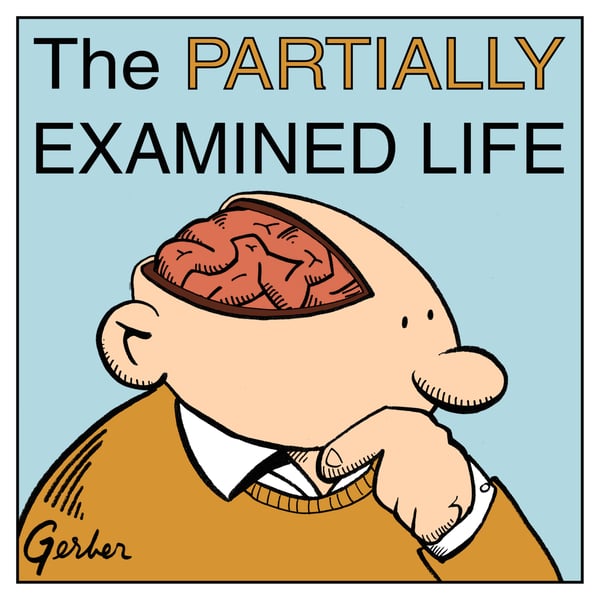Ep. 257: Locke Against Innate Ideas (Part One)
The Partially Examined Life Philosophy Podcast
Mark Linsenmayer
4.6 • 2.3K Ratings
🗓️ 23 November 2020
⏱️ 49 minutes
🧾️ Download transcript
Summary
On Book I of John Locke's Essay Concerning Human Understanding (1689).
How do we know things? Locke thought all knowledge comes from experience, and this might seem uncontroversial, but what are the alternatives? We consider the idea that there are some ideas we're just born with and don't need to learn. But what's an "idea," and how is it different from a principle? Clearly we have instincts ("knowhow") but is that knowledge? We consider occurrent vs. dispositional nativism, the role of reason, and what Locke's overall project is after.
Don't wait for Part Two; get the full, ad-free Citizen Edition now. Please support PEL!
Transcript
Click on a timestamp to play from that location
| 0:00.0 | You're listening to the partially examined life, a podcast by some guys who are at one |
| 0:11.7 | point said on doing philosophy for living but then thought better of it. |
| 0:15.0 | Our question for episode 257 is, something like, are there some ideas that we're just |
| 0:19.9 | born with and we don't have to learn them and can be served as a foundation for the rest |
| 0:23.8 | of our knowledge? |
| 0:24.8 | And we're reading book one of John Locke's, an essay concerning human understanding from |
| 0:29.6 | 1689. |
| 0:30.6 | For more information and links to the text, please visit partiallyexaminlife.com. |
| 0:35.1 | This is Mark Linson-Mire, universally consented to in Madison, Wisconsin. |
| 0:39.3 | This is Seth Paskin, impossibly being and not being in Austin, Texas. |
| 0:45.3 | This is Wes All One interrogating children and idiots in Cambridge, Massachusetts. |
| 0:51.7 | This is Dylan Casey removing the rubbish from choking my storm drain in Middleton, Wisconsin. |
| 0:57.7 | Man, oh man. |
| 1:00.5 | Mr. Johnny Locke, we skipped this one early on. |
| 1:04.5 | We went straight from Plato, recollection theory of knowledge. |
| 1:08.4 | There is stuff that we, when we're doing math problems, we just realize, I guess we knew |
| 1:12.8 | this already. |
| 1:13.8 | I guess even an uneducated slave boy in the Meno, for instance, can find that he has geometrical |
| 1:19.9 | knowledge and skip right to hum that the only thing we know is what we've experienced. |
| 1:25.6 | And we missed a few links. |
| 1:27.3 | And since we've covered Descartes in much more detail recently in the last year than |
| 1:32.1 | we did at the very beginning of this podcast 11 years ago, this seemed like a good time |
... |
Please login to see the full transcript.
Disclaimer: The podcast and artwork embedded on this page are from Mark Linsenmayer, and are the property of its owner and not affiliated with or endorsed by Tapesearch.
Generated transcripts are the property of Mark Linsenmayer and are distributed freely under the Fair Use doctrine. Transcripts generated by Tapesearch are not guaranteed to be accurate.
Copyright © Tapesearch 2025.

